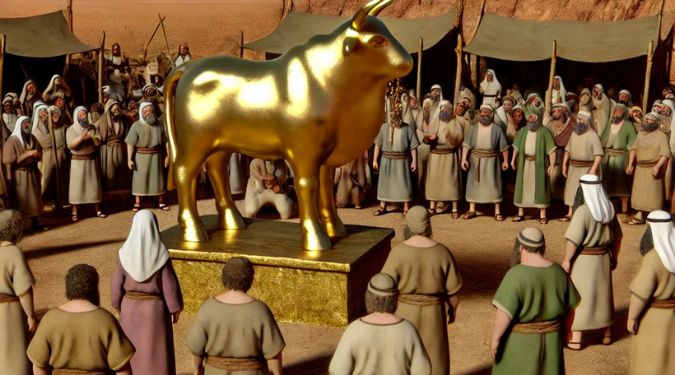On the edge of the promised land, after hearing the reports of the men who scouted Canaan, the Israelites lamented and doubted God and Moses. Moses then reminds God of his own words:
The Lord is slow to anger, and abounding in steadfast love, forgiving iniquity and transgression, but he will by no means clear the guilty, visiting the iniquity of fathers upon children, upon the third and upon the fourth generation.’ Numbers 14:18
How could a loving God punish the descendants of evil men down to the third and fourth generations? Is this fair? We see similar passages in Exodus 20:5 and 34:6-7, Deuteronomy 5:9, and Jeremiah 32:17b-18.
We know that family dysfunction in one generation can impact the lives of families for several generations, but this verse seems to be about active punishment.
As I’ve mentioned before, in cases like these, it’s wise to turn to the Church Fathers.
Saint Pacian was a bishop of Barcelona during the fourth century, from about 365 AD to 391 AD, and is considered a Father of the Church. In his Exposition of the Old and New Testament (AD 391), he writes on the similar passage in Exodus (34:7):
This passage can also be understood in another way, because when each one imitates the iniquity of his sinful parent, he is rendered guilty through his parent’s fault. But whoever does not imitate the iniquity of his parent is not burdened with his sin. Thus it happens that the sinful son of a sinful father pays the penalty not only for his own sins, which he committed, but also for his father’s sins. For he does not fear to add his own malice to his father’s vices, even though he knows that the Lord is angered by them.
St. Pacian continues:
For the sons can see the lives of the parents they imitate up to the third and fourth generation. Punishment extends up to them, for they saw what they would imitate sinfully.
A little later, In about AD 420, St. Jerome (who eulogized St. Pacian, by the way), in a letter to a noble lady of Rome, wrote about this verse (Numbers 14:18):
That is to say, God will not punish us at once for our thoughts and resolves but will send retribution upon their offspring, that is, upon the evil deeds and habits of sin which arise out of them.
So it’s the descendants who imitate the sin of their ancestors who are punished. It’s important to note that at least two of the related verses concern the sin of idolatry, which is often practiced by descending generations of families.
Saints Pacian and Jerome were well versed in the Sacred Scriptures, and so their teaching took all of the inspired writings into account. For example, they undoubtedly did not forget the first part of the verse from Numbers, which reads, “The Lord is slow to anger, and abounding in steadfast love, forgiving iniquity and transgression…”
Or that part of the Mosaic Law listed in Deuteronomy 24:16 which says,
Parents shall not be put to death for their children, nor shall children be put to death for their parents; only for their own crimes may persons be put to death. Deuteronomy 24:16
Or the Prophet Ezekiel who said:
The soul that sins shall die. The son shall not suffer for the iniquity of the father, nor the father suffer for the iniquity of the son; the righteousness of the righteous shall be upon himself, and the wickedness of the wicked shall be upon himself. Ezekiel 18:20
And the Prophet Jeremiah too:
But everyone shall die for his own iniquity. Jeremiah 31:30
So time after time we see that the Church Fathers have a marvelous way of clearing up difficulties we perceive in the Scriptures. Let’s turn to them more often.




Well said